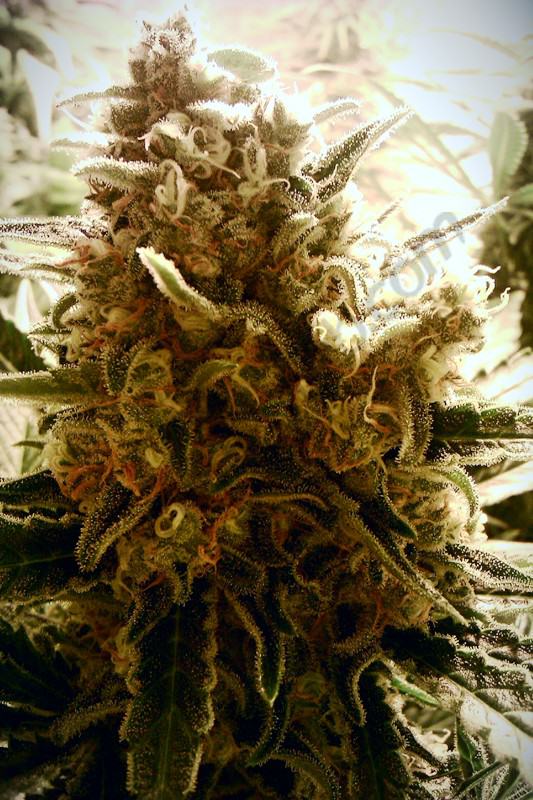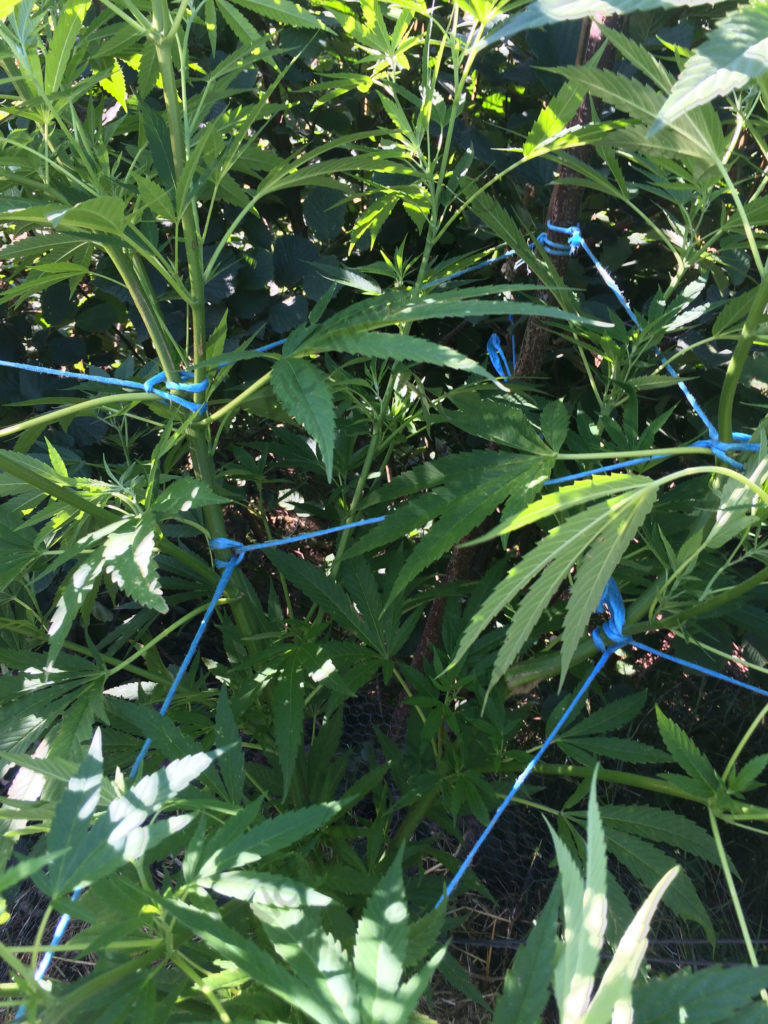Should you play music to your cannabis plants?
List of contents
Music is a powerful force. It can make us dance, cry, laugh, relax or elevate our mood. While we can enjoy music by listening to it with our ears, plants may also enjoy music by feeling its vibrations. In fact, studies indicate that the right vibrations played intermittently can help plants grow and ultimately improve the quality and quantity of a crop.
Professional cannabis growers often promote various techniques that home growers can use to obtain the highest quality buds. In this regard, some have resorted to playing music for their cannabis plants after a number of experiments correlated exposure to music with increased size and yield in a variety of species. So it might not hurt to also set up a pair of speakers next to your grow tent and start blasting some tunes at full volume.
Do plants grow better when exposed to positive vibrations?
It may surprise you to learn that analysts have been considering the impact of music on plants for quite some time, although the idea took root in the heyday of 'new age' thinking thanks to a book, 'The Secret Life of Plants', published in 1973 and written by Christopher Bird and Peter Tompkins, an account of the "physical, emotional and spiritual relationships between plants and man" that helped popularise the idea. Bird and Tompkins cited scientific studies suggesting that music not only helps plants grow but that they also have a level of consciousness and can respond intelligently to people.
Part of their inspiration came from Indian botanist Dr TC Singh, who was head of the Department of Botany at the University of Annamalai (India) in the 1960s. His experiments involved exposing plants to 'ragas' (melodic modes in Indian classical music) for various periods of time throughout the day. There were wonderful results: plant metabolic processing accelerated by up to 200%, rice yields were 25-60% above average, while groundnuts and tobacco produced up to 50% more than average.
Even the seeds were affected by the music, Dr Singh found, growing into plants that were taller and leafier than their sisters. Given all the information he gathered, Dr Singh believed the plants responded more positively to violins. These results were replicated by Canadian engineer Eugene Canby, who in 2007 exposed his wheat fields to JS Bach's violin sonata and experienced a 66% increase in yield. Other experiments by botanist and agricultural researcher George Smith in Illinois also produced 40% higher yields in corn and 24% higher yields in soybeans simply by playing George Gershwin's 'Rhapsody in Blue' on a loop.
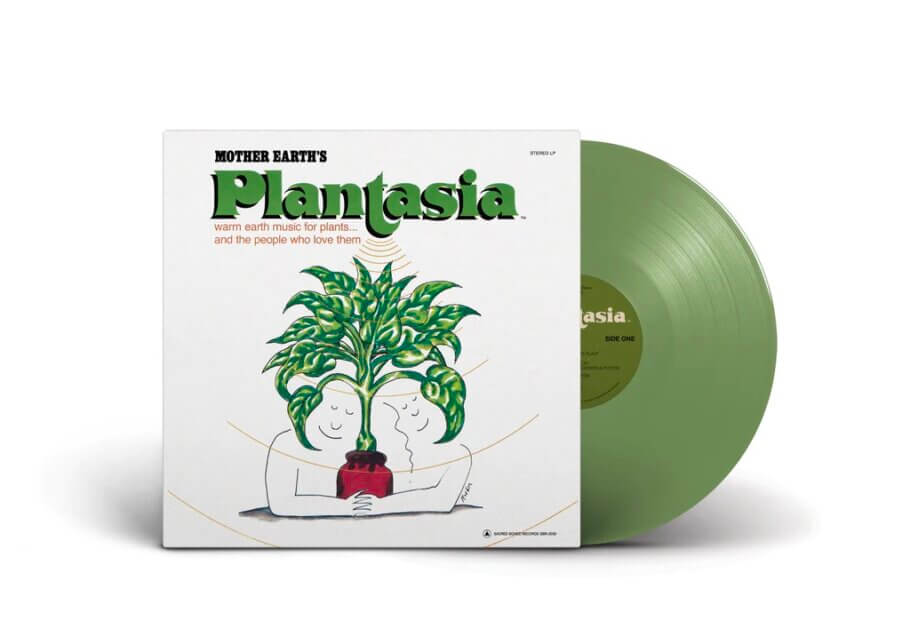
Rock is the Devil's music
So, plants seem to like classical music, especially the violin. But what about other genres? It's not so much about the music. It's not that plants have particular tastes and musical preferences; it's all about the vibrations. Plants seem to respond best to sounds at a frequency between 115 and 225 Hz, corresponding to sounds found in nature.
They also seem to prefer gentle vibrations. As demonstrated by experiments with plants conducted by Dorothy Retallack in 1973 at Colorado Woman's College in Denver using biotronic control chambers, involving tones and music. The plants grew towards the source of the music when exposed to jazz and classical music, but moved away and died when exposed to rock. Retallack's study found that the plants wilted after listening to Led Zeppelin and Jimi Hendrix. They even showed damage from over-hydration. Apparently, rock music was not at all friendly to plants. Their experiments revealed that Indian classical music provided by far the most stimulating results for their test marigolds. Those were different times.
Almost 40 years after this experiment, in 2009, Tan Shen Mynn and Huang Shiqin of the National University of Singapore conducted a similar experiment to study the effects of sound energy on plants. Their results concluded that no matter what kind of music a plant is exposed to (they used Zea mays, a plant similar to corn), the louder it is, the more abundant it grows. While even heavy metal music helped increase leaf area by up to 86.2%, classical music helped increase leaf size by up to 91.6%. Louder music produced positive effects on plant germination. This is thought to be because the vibrations help the plant transport water and minerals; the louder the vibrations, the more assistance they provide to the plants.

Music and plant growth: I'd like an explanation
Plants are amazing organisms: without a brain or central nervous system, they can still sense the environment around them. Because of their inability to move, plants are under continuous pressure to deal with numerous environmental factors and cues to ensure their survival. To this end, they have evolved numerous sophisticated mechanisms to use these signals to modulate their growth and development in the course of evolution. As a consequence of incessant evolutionary pressure, plants have evolved sensitivity even to physical and mechanical factors (e.g. wind, rain, touch), in addition to the well-known biotic and abiotic stimuli (e.g. light, temperature and pathogens).
Vapour pressure deficit (VPD) in cannabis cultivation
Temperature and relative humidity play an important role in indoor marijuana cultivation since much of the plant's activity depends on these factors. Incorrect values of these two parameters will result in an invalid VPD (vapour pressure deficit), which will in turn result in poor plant development. In this article we explain how to properly adjust these values so our plants can enjoy a good climate for an amazing development.
In the same way, plants react to vibrations in the air and soil, helping them to protect themselves from hungry caterpillars or to slow their growth in windy areas that might break their branches, for example. The sound of a caterpillar chewing on a plant's leaves will cause the specimens to increase the production of defensive chemicals designed to deter attackers. In addition, plants are able to differentiate between acoustic energy that signifies a threat and sounds from non-threatening sources.
The theory that plants can listen is supported by a 2017 study by the University of Western Australia, which found that plants have evolved senses that allow them to detect and respond to sounds to find water. That is, plants can sense the sound vibrations of running water moving through pipes or soil and will move their roots towards those sounds. This may be one explanation for why the roots of urban trees tend to colonise sewage networks.
The same is true of music, which is made up of vibrations. And whether it is music, the hum of a busy road or the sound of approaching predators, plants have learned to pick up vibrations and react according to these vibrational signals. Therefore, it is likely that plants that react adversely to aggressive rock music do so because their evolutionary makeup has taught them that these low-frequency sound waves represent a threat (industrial equipment such as vehicles also produce low-frequency sound waves). Higher frequency sound waves, on the other hand, such as those produced by classical music, can have the opposite effect, signalling to the plant that conditions are optimal for growth and development.
How can this behaviour be analysed?
The best scientific theory on how music helps plants to grow can be found in a study published in 2014 in the Journal of Integrative Agriculture, which explains how sound wave vibration affects the plant and provides an overview of the literature on the effects of sound waves on various growth parameters and different stages of their life.
According to this study, plants transport nutrients, proteins and organelles in their fluids (cytoplasm) through a process called cytoplasmic streaming. The vibration of certain types of music and sounds can help stimulate this process; in nature, plants may grow advantageously around birdsong or in areas with strong breezes.
Other theories indicate that classical music seems to positively affect plants, while the violent vibrations of music such as rock music damage the protoplasm, a colourless liquid inside a cell where essential parts such as the nucleus are suspended. When that protoplasm vibrates due to sound waves, it affects the health of a cell. The more violent the movement, the more stressed the cell becomes.
Finally, other researchers even theorise that the reason for this is that the frequency of the music encourages stomata to open, the tiny pores on the surfaces of plants that act like little lungs, allowing for a greater intake of air and nutrients and helping to accommodate greater transpiration.
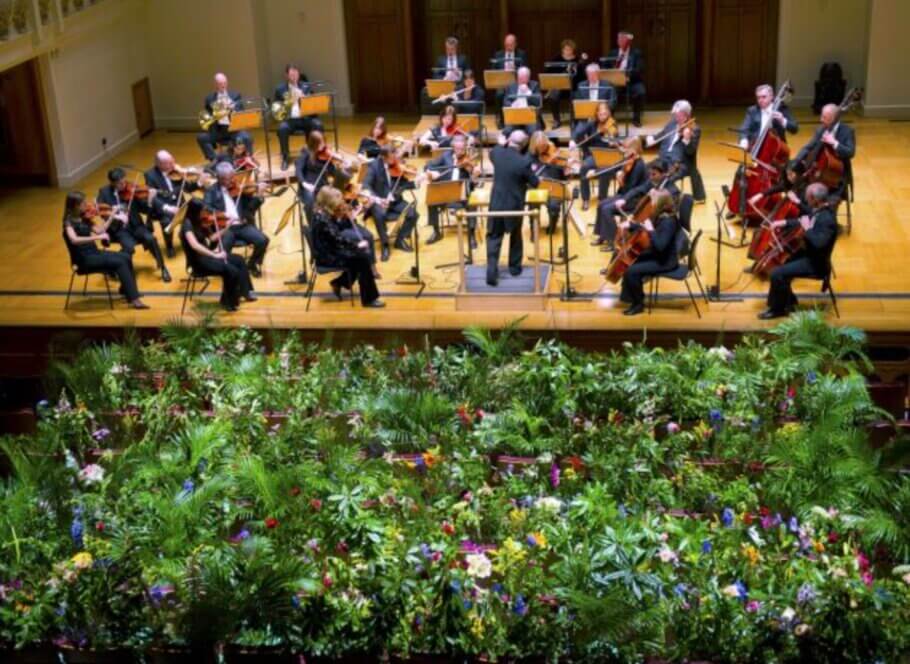
Should I flood my grow room with music?
As you can see, despite a good deal of research, science still doesn't really know with certainty whether plants grow better with music and, if so, why they do. While you will undoubtedly find many gardeners who swear that their plants grow better when listening to David Bowie's 'Starman', there is still no conclusive evidence that music helps plants grow. In fact, many botanists have criticised experiments that "prove" this fact as pseudoscience, or scientifically flawed and not replicable.
A publication from the University of California, Santa Barbara, points out that there are so many variables in these experiments that may not have been properly accounted for, such as light and water, air pressure and soil conditions. They also suggest that it may simply be that it is not the plants, but their caretakers that benefit from the music! This may also be the reason why talking to plants is said to help their growth, as those caretakers are simply more attentive.
But the idea is still plausible, at least according to the popular TV show MythBusters. They tackled this issue in 2004, setting up seven greenhouses with different conditions: one had no music, one played classical music, one played death metal, two played negative speech recordings and one played positive speech. In this version of the experiment, the plant exposed to death metal grew better than the rest! Classical music came second, followed by both negative and positive playback speech, which exhibited similar growth. But it was the plant exposed to no sound at all that died last.
Companies that use music to help cannabis cultivation
But despite the current lack of hard and unequivocal evidence, some commercial cannabis producers are using music to improve their crops and increase the quality, quantity and overall profits of their harvests. Here are a couple of brands working to utilise this strange, but seemingly effective practice:
Based in Denver, Colorado, Sticky Buds has a breeder grower who believes in the science behind music and cannabis. Elias Tempton has reported seeing a much higher potency in the company's buds after he started playing classical music in the grow room. Classical music, from Chopin to Beethoven, now plays approximately five hours a day at Sticky Buds' grows. Their cannabis is a testament to the theory that music helps with cannabis potency: they have the highest quality weed you can find in the Denver area.
Based in Eugene, Oregon, SugarTop Buddery is also taking grow room music to a new stage. Their mission is to grow the local music scene and bring cannabis and artists together in a cutting-edge community. You may have stumbled across their YouTube channel, where they host all their 'jam sessions' with new bands and performers to show their love for cannabis, and invite local artists and infuse their plants with "good vibes" by playing live.
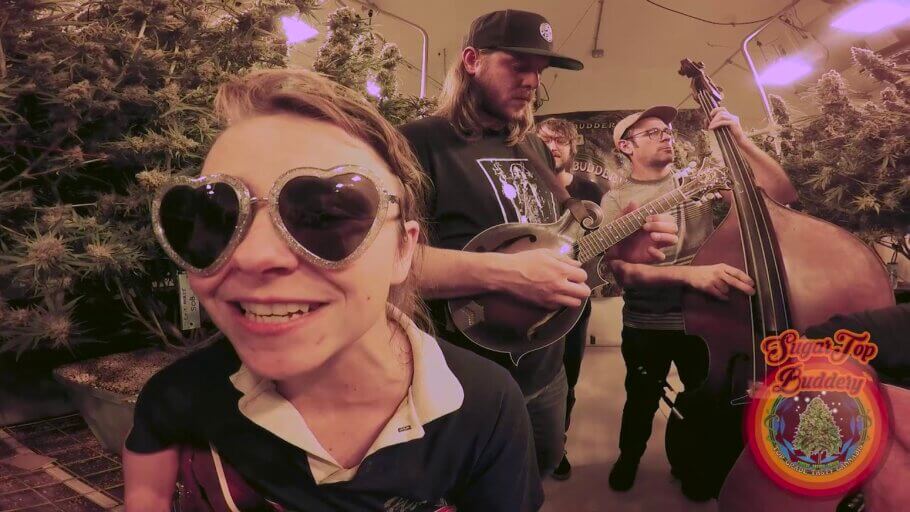
Music for the people
Music is food for the soul, but is it plant food too? We are still waiting for a definitive answer. But regardless of whether or not playing music actually helps cannabis plants grow, at least it can't hurt them! At least as long as you don't put the plant right next to a loudspeaker and turn it up to the max.
Music has many ways to move us. Across cultures and species, organisms react to music in ways that can reduce stress, improve health and increase growth. So it is hardly surprising that music has the same effects on plants. But while most scientists today remain divided on the issue, the fact remains that playing music to your cannabis plants is, first and foremost, a demonstration of love and care, which by itself is a proven method of stimulating growth.
What do you think about the beliefs and science behind using music to help your weed plants grow? Do you use classical music (or other music) to help stimulate your plants' growth? Let us know in the comments!
----
References:
- Advances in Effects of Sound Waves on Plants. Reda Hassanien, Tian-zhen Hou, Yu-feng LI, Bao-ming LI.
- Exposure to Sound Vibrations Leads to Transcriptomic, Proteomic and Hormonal Changes in Arabidopsis. Ritesh Ghosh, Ratnesh Chandra Mishra, Bosung Choi, Young Sang Kwon.

































































